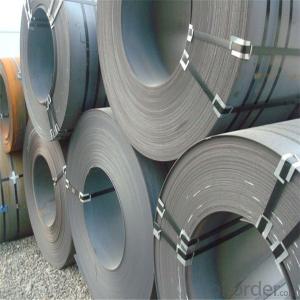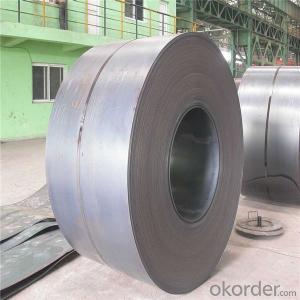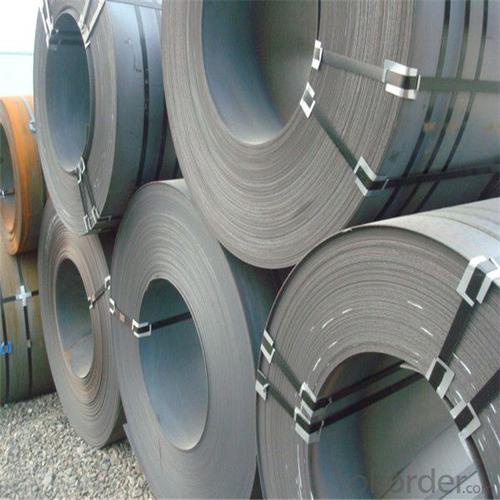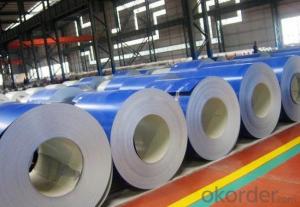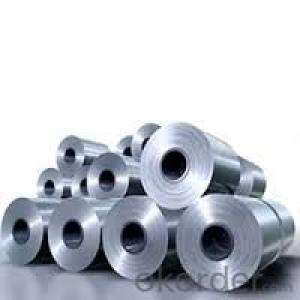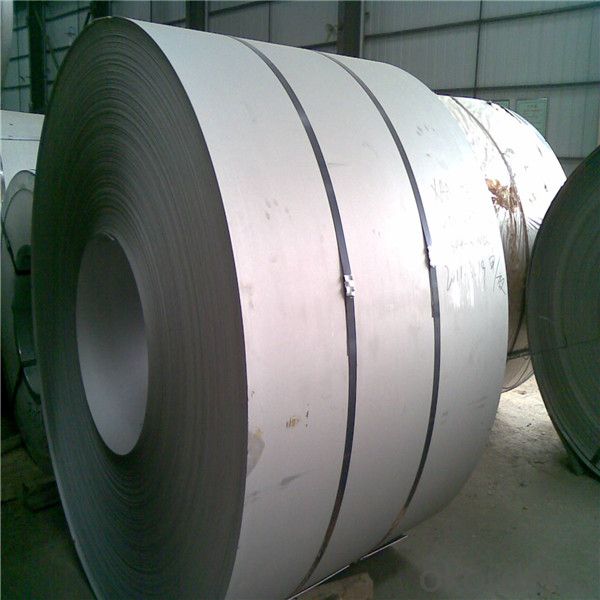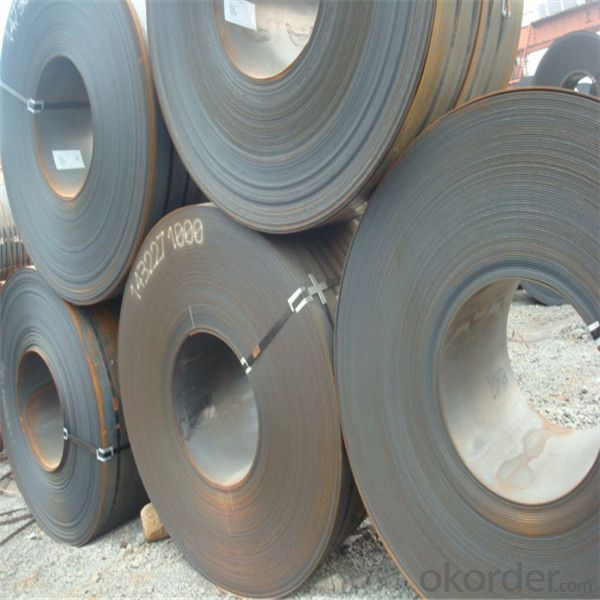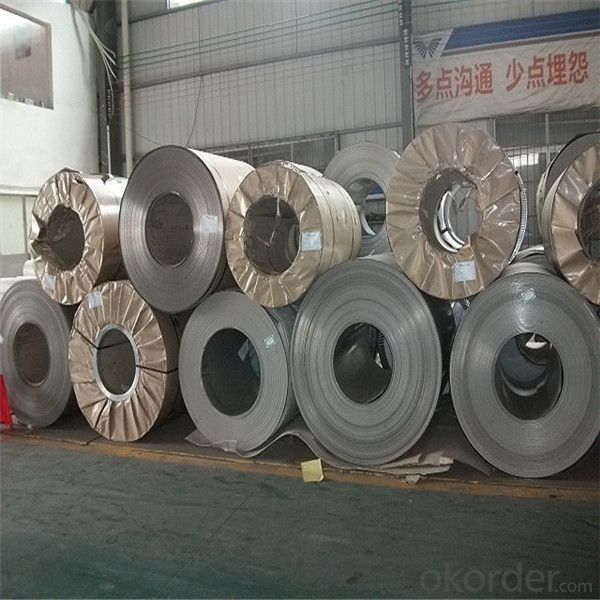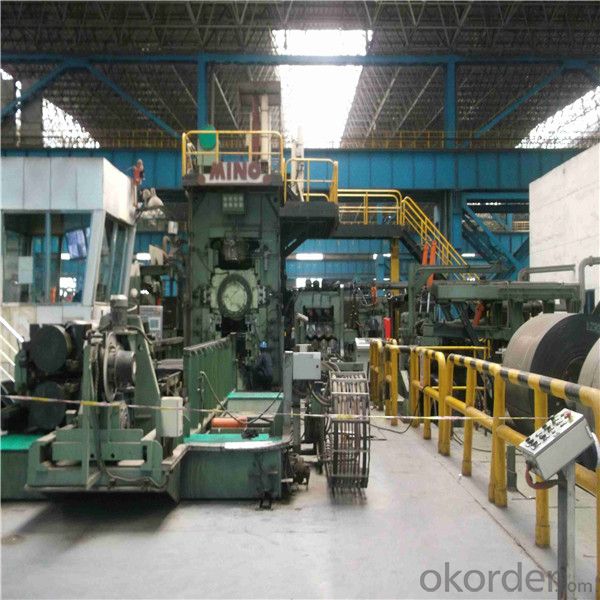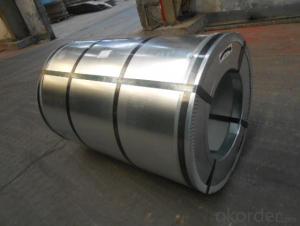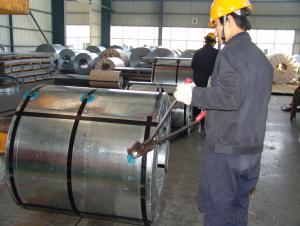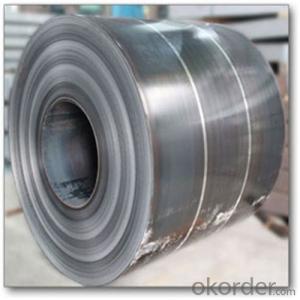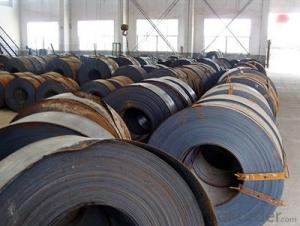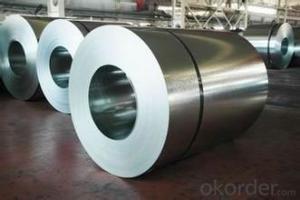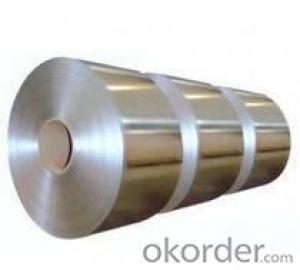Hot Rolled Steel Coil best sale in different thickness
- Loading Port:
- Tianjin
- Payment Terms:
- TT OR LC
- Min Order Qty:
- 50 m.t.
- Supply Capability:
- 1000 m.t./month
OKorder Service Pledge
OKorder Financial Service
You Might Also Like
Specification
Hot rolling is a mill process which involves rolling the steel at a high temperature (typically at a temperature over 1700° F),
which is above the steel’s recrystallization temperature. When steel is above the recrystallization temperature, it can be
shaped and formed easily, and the steel can be made in much larger sizes. Hot rolled steel is typically cheaper than cold
rolled steel due to the fact that it is often manufactured without any delays in the process, and therefore the reheating of the
steel is not required (as it is with cold rolled). When the steel cools off it will shrink slightly thus giving less control on the size
and shape of the finished product when compared to cold rolled.
Our Advantage: High quality steel products from 1 class mills in China
Reasonable price
Professionalism of the products
On-time delivery
Complete documents and certificates
Sincere service to meet our clients' requirements
Standard and Grade :
Hot rolled steel coils | ||||
JIS | ASTM | SAE | EN | |
Commercial quality | G3131 SPHC | A569 A635 A659 A1011 CS Type A,B,C | 1006~1025 |
10111 DD11 |
Drawing quality | G3131 SPHD | 1006~1010 | 10111 DD12 | |
Deep drawing quality | G3131 SPHE | A622 A1011 DS Type A,B | 1006~1010 | 10111 DD13 DD14 |
General structure (T.S.<490N/MM2) | G3101 SS330 SS440 G3106 SM400A G3132 SPHT1 SPTT2 SPHT3 | A36 A283 GR.C A570 GR.30~40 A1001 SS GR.30~40 |
1010~1025 | |
General structure (T.S.≥490N/MM2) | G3101 SS490 G3106 SM490A SM490YA | A570 GR.45~50 A607 GR.45~70 A1011 SS GR.45,50 |
J1392 050X | |
|
Application :
Automobile Industry, electrical appliance, machinery manufacturing, container manufacturing, shipbuilding,
bridge, pipeline, and receive high acclaim from our customers for its excellent quality.
Packing:
Packaging Detail | The packing of coil consists of anti-damp paper ,PVC film ,hardboard paper , steel box , strapped with steel strips, fitted with locks and edge protectors and guarantees the optimal condition of the delivered goods. Each coil can be additionally fitted with wooden/steel skids(eye of the side) or wooden pallets(eye of the sky) |
Delivery Time | within 30 days of receipt of LC original or prepayment |
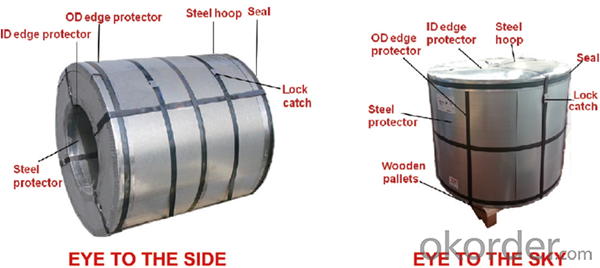
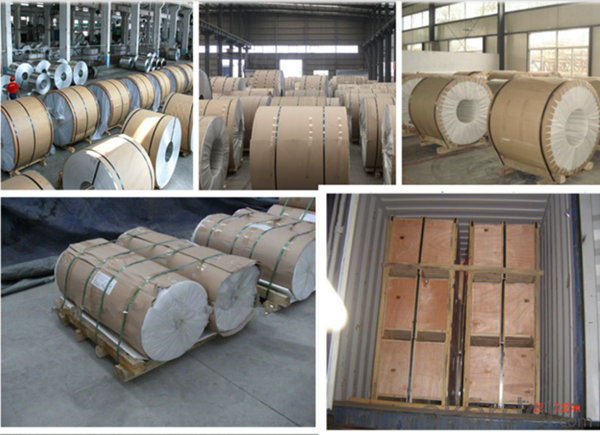
Our Services
MOQ | FCL, 25 metric tons per 20GP, can be assorted with different sizes. |
LCL for trial order is acceptable. | |
Price Term | EX-WORK, FOB China Port, CNF, CIF |
Payment | T/T, 30% advanced payment before production and balance before shipment; OR Irrevocable L/C at sight. |
Delivery Time | within 30 days of receipt of LC original or prepayment |
FAQ:
1. Can you offer OEM to me? What about MOQ?
Of course, we are a professional with OEM manufacturer for 9 years. the MOQ can be 50 ton/ order..
2. How to guarantee the quality of the products?
We have established the international advanced quality management system,every link from raw
material to final product we have strict quality test;We resolutely put an end to unqualified products
flowing into the market. At the same time, we will provide necessary follow-up service assurance.
3. How long can we receive the product after purchase?
Usually within thirty working days after receiving buyer’s advance payment or LC. We will arrange the
factory manufacturing as soon as possible. The cargo readiness usually takes 15-25 days, but the
shipment will depend on the vessel situation.
4.How Can I Get Some Sample?
We are honored to offer you free sample, but courier charges will be on your side.
- Q: Does steel contain nickel?
- Yes. Different alloys contain differing amounts.
- Q: What are the safety precautions while handling steel coils?
- Some safety precautions while handling steel coils include wearing protective gloves and clothing to prevent cuts and scrapes, using proper lifting techniques to avoid back injuries, ensuring a clear and organized work area to prevent tripping hazards, and using appropriate equipment, such as forklifts or cranes, to safely move and stack the coils. It is also important to follow proper storage procedures to prevent the coils from falling or shifting and causing accidents.
- Q: How are steel coils used in the manufacturing of exhaust systems?
- Steel coils are used in the manufacturing of exhaust systems as they are rolled into sheets and then formed into various components such as mufflers, pipes, and catalytic converters. These coils provide the necessary strength, durability, and corrosion resistance required for exhaust system components to withstand high temperatures and harsh conditions.
- Q: How are steel coils used in the production of agricultural implements?
- Steel coils are used in the production of agricultural implements as they are formed and shaped into various components such as blades, tines, or plowshares. These sturdy and durable steel components are then assembled into agricultural machinery like plows, cultivators, or harrows, which are essential for tasks like tilling soil, planting crops, and harvesting. The strength and resilience of steel make it an ideal material for agricultural implements, ensuring they can withstand the demanding conditions of farming and contribute to efficient and effective agricultural operations.
- Q: Several reading methods of steel tape measure
- Precise steel tape factory and after a period of time must go through the verification and indicate the verification of temperature, tension and feet. Feet marked on the length of its nominal length, and the difference between the actual length is called length correction delta l ruler by different tension will make feet long. To avoid this change requires the use of steel tape according to the scale mark force of steel tape. At different temperature the foot will change with the temperature so it is necessary to use t as variable function to represent the feet long, this is the ruler length equation, its general form:
- Q: What are the common surface defects in steel coils?
- Common surface defects in steel coils include scratches, rust, scale, pits, and stains.
- Q: For robotics homework, I need to find out how steel is galvanized and why. I researched a little bit, and I'm not sure I grasp the entire concept. Simple words would be helpful :) Thank you!!!
- Steel can be galvinised by electroplating process. Galvinising means providing a zinc coating on steel surface. It protects the material from rusting and loosing the shinining.
- Q: I have a job where I'm required to wear ANSI certified steel toed boots or shoes(so long as its ANSI). Thing is, I'm a vegan. I do NOT want to buy leather, and I will go to great lengths to buy a non leather shoe/boot I can wear on the job! I AM currently borrowing my dad's leather ANSI boots, but would very much love to be able to rock a pair of cruelty free boots/shoes on the job!It does not have to be certified vegan just all man-made materials and no leather/sued and other such stuff where animals have to die. It would make me no better than the massive slaughterhouse industries and such. Valueing money of ver live/morals. I don't want one of the first things I need to do in my manufacturing job is compromising my morals. :3So if you know of an ANSI vegan friendly boot brand PLEASE TELL ME! *gets on knees begging*Money isn't really an option for me, I'll just continue borrowing my dad's boots till I save up enough!Thanks in advance! :D
- This Site Might Help You. RE: Vegan ANSI Steel Toes? I have a job where I'm required to wear ANSI certified steel toed boots or shoes(so long as its ANSI). Thing is, I'm a vegan. I do NOT want to buy leather, and I will go to great lengths to buy a non leather shoe/boot I can wear on the job! I AM currently borrowing my dad's leather ANSI...
- Q: How are steel coils inspected for camber?
- Steel coils are inspected for camber by using a straight edge or a camber gauge, which is placed on top of the coil to measure any deviation from straightness. The operator checks the distance between the straight edge and the coil at various points along its length to determine the amount of camber present.
- Q: So...I'm learning about how steel is made and I'm wondering if there is a more environmentally friendy method. I view it as unfriendly b/c of the oxygen that is injected when the steel is in the blast furnace or electric arc furnace. This oxygen bonds w/ the carbon to produce CO and CO2. THis is necessary to reduce the amount of carbon content to produce harder steels. So what other methods are there that can be used w/o having to end up w/ co and co2? thanks
- From what I understand of it, US steel is better as the steel is more recycled than Canadian, so a lot of that oxygen / CO2 has already taken place compared to working from ore. The second reason US steel is environmentally ahead of Canadian is that US tends to use Electric Arc, while Canadian uses Basic Oxygen, Basic Oxygen uses more energy than electric arc, and I think it also uses more oxygen, but I would suspect that oxygen that it uses is 'waste oxygen' and not converted into Co2 because the Co2 process is limited by the carbon, and steel only has so much carbon.
Send your message to us
Hot Rolled Steel Coil best sale in different thickness
- Loading Port:
- Tianjin
- Payment Terms:
- TT OR LC
- Min Order Qty:
- 50 m.t.
- Supply Capability:
- 1000 m.t./month
OKorder Service Pledge
OKorder Financial Service
Similar products
Hot products
Hot Searches
Related keywords
